You can hack Windows 8 Metro
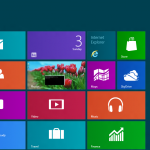
The Metro user interface is without doubt the most controversial feature of Microsoft's upcoming operating system Windows 8. When you dive deeper into the criticism that Metro faces, you notice that one argument stands out among the majority of critics: Metro is for tablets and touch-devices and not the desktop.
While it is possible to use Metro with a mouse and keyboard, its big buttons and controls, like the Charms menu and swiping motions, do cater to an audience that uses touch-devices. When you look closer, you will also notice that Metro does not really offer anything that desktop users can't do on the PC or on the Internet as well, oftentimes even better.
Paragon Backup & Recovery 2012 now supports Windows 8

Already one of our favorite free disk imaging tools, Paragon Backup & Recovery 2012 Free has today been improved further via a maintenance upgrade.
The headline addition this time around is support for Windows 8. There is a wrinkle in the small print, where Paragon say “Paragon Backup and Recovery 2012 Free edition has been tested on Windows 8 Developer Preview and Consumer Preview” -- so presumably if you’ve moved on to the latest Release Preview then there’s still the possibility of issues. (Although, to be fair, if you want guaranteed data security then you probably shouldn’t be using the buggy and unfinished Windows 8 in the first place.)
8 big features of Windows Phone 8
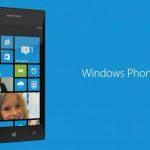
At the Windows Phone Summit in San Francisco today, Microsoft provided the first look at its upcoming update to the Windows Phone mobile operating system, Windows Phone 8.
Microsoft has unveiled just a few of the banner features that will be included in the next versions of Windows Phone 8. Conveniently, there are eight major parts of the company's announcement today.
Cybele launches beta of 'Metro-style' HTML5 Web terminal emulator
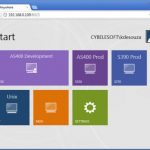
Tuesday, legacy access software company Cybele Software launched the beta of z/Scope Anywhere version 7.0, a HTML5 and Javascript-based terminal emulator that lets any modern device securely connect to IBM S/390 Mainframe, AS/400, and Unix hosts through the browser in a conspicuously "Metro-style" interface with touch and virtual keyboard support.
Remote users connect to the z/Scope Anywhere server with any HTML5-complaint browser, including Chrome, Firefox, Safari, Opera, Internet Explorer, as well as mobile and tablet browsers. Once connected, the server translates all of the interactions between the "old school" architecture and the "new school" client device. The z/Scope server software, meanwhile, can be run on Windows XP/Vista/7 and Windows Server 2003/2008 setups.
Surface is Project Origami's revenge
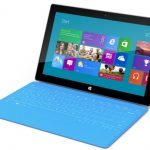
Surface isn't just about the future. The tablet is also about the past, and Microsoft bringing to market a vision quashed by its hardware partners. In 2012, Surface is all about Apple and Microsoft securing a fast foothold in the emerging cloud-connected device category. But the tablet also encompasses something sought six years ago: Project Origami.
It's no coincidence that Project Origami's launch was, until yesterday, the last time Microsoft held a super-secretive media event that generated big buzz. Surface and the other share much in common, and not just buzz. Before there was iPad, Microsoft developed Ultra-Mobile PC -- or what Project Origami came to be branded. The idea: To bring to market a sub-$500 touchscreen computer. The software giant sought this product category four years before iPad stormed the media tablet market. Surface is Project Origami's revenge, against Apple and Microsoft's hardware partners.
Should Microsoft release a branded tablet?
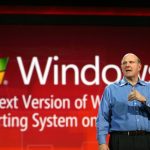
It's Microsoft mystery Monday, with some big announcement coming at 6:30 pm EDT. The current rumors all focus on tablets, with the most recent being a partnership with Barnes & Noble. Can you say Windows Nook? (However, after I posted, Barnes & Noble issued a non-participation statement).
There's a broader question: Should Microsoft release a branded tablet? I pose that to you on this fine day. I'm certainly perplexed. The big advantage to such an announcement is timing. Google is expected to debut its own branded Galaxy Nexus tablet at the I/O developer conference next week. Microsoft could steal Google's thunder by doing something first. But would it be, with Windows 8 still in development? Now it would be big if Microsoft said Windows RT is ready now and this tablet , whether made by Barnes & Noble or somebody else, ships imminently. Otherwise, why bother announce June 18, when OEM partners showed off Windows RT models earlier this month at Computex?
Windows 8 is like a bad blind date

She's stunning, sexy and sultry. But you can't live with her.
Every day for the last three weeks, I sat down to write this analysis but couldn't bring myself to. I resisted for not having used Windows 8 as much as its predecessors -- typically from public beta to release candidate before offering hard opinion. In October, I requested one of the Samsung tablets handed out to BUILD attendees but Microsoft wouldn't provide one. After several more requests, I got one in April and May for about a month's use and was shocked -- and not "wow, it's good". Windows 8 demos much better than my actual user experience. I blamed myself. Surely the problem is mine -- that Microsoft wouldn't unleash UX worse than Windows Vista. But as I see other users/reviewers sharing similar experience, time has come to break my silence. I wouldn't recommend Windows 8, in its current form, to anyone.
IDC will finally count Windows tablets with iPads and Androids

Hopefully, Gartner and other analyst firms will show as much sense.
Windows tablets have gotten the shaft from IDC and other analyst firms for far too long. They count the devices as PCs, not tablets. Last year, after Gartner's tablet forecast failed to include Windows, several prominent bloggers fanned the flames of misinformation, wrongly concluding Microsoft's OS would have no share by 2015. Today, IDC issued a new forecast that still ignores Windows tablets, but changes are promised.
Windows 8 lacks true spirit [review]
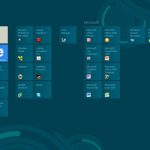
I have been testing Windows 8 Release Preview 64-bit for over 10 days now. I have installed it onto a second partition on two computers: Lenovo ThinkPad T61 and desktop clone computer. On both PCs, Windows 7 is also installed as an alternative OS. I set up dual boot using free tool Easy BCD.
My conclusion so far: this is an operating system one can live with, but that hardly justifies upgrading from Windows 7. That is unless you have got a tablet computer and like the new Metro UI. Since I haven't got one, the new Metro UI for me is just a bother -- simply a hindrance for efficient work. Except for this new user interface there is actually hardly anything new, while on the other hand, not one single awkward or archaic concept has been replaced by something new.
OS X Mountain Lion launches in July

Today, at Worldwide Developer Conference, Apple laid a big challenge before Microsoft. While Windows 8 continues in testing, and won't come to new PCs until autumn, the next OS X version is ready for the masses sooner, as in next month. In the battle of oneupmanship, Apple is the clear winner. Today, Apple launches an OS war against Microsoft. The company also announced new MacBook Airs and Pros, which ship immediately, with free upgrades to Mountain Lion.
During the WWDC keynote, Apple revealed there are 66 million Mac user worldwide, which is three times the number five years ago. Apple has shipped 26 million copies of Lion to date, accounting for 40 percent of the install base. That's seems low considering it costs just $29.99.
Today Apple and Microsoft write Android's epitaph

As I compose this post, Microsoft's TechEd keynote is underway, while Apple will kick off Worldwide Developer Conference in just a few hours. Both events will put forth very different views of the cloud-connected device future, which Gartner says will start as soon as 2014, when the cloud replaces the PC as everyone's personal digital hub.
For Apple, iOS 6 will be center stage, whetting consumers' appetites and giving them another weapon in their bring-your-own-device assault on workplace IT. Meanwhile, Microsoft pitches new wares for the enterprise -- Office, Windows 8, RT and Server, for starters. Where the two companies meet is the tablet, and there's no room between them for Android.
Windows 8 needs a little more work
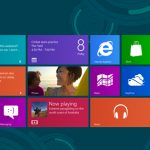
Windows 8 gets a poor grade on a simple task. What is that task you may ask? Read on.
Every Windows computer needs a beginners programming language. Those of us from the DOS days can look back fondly on QBasic. From learning how to program, to just having a quick and easy scripting language that a business user can use to write some simple app in a few minutes, a beginners language makes sense. So what beginners programming language might fit the bill for Windows 8? Microsoft's own Small Basic!
Instead of buying a touch-enabled PC for Windows 8, just use your iPad or Android tablet
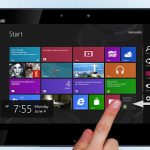
Splashtop Inc. makes a handful of applications that allow users to link their mobile tablets with their PC in different ways. On Wednesday, the company released a new tool for developers that lets them use an Android tablet or an iPad as the touch interface for Windows 8.
Called Win8 Metro Testbed -- Powered by Splashtop, the application recognizes more than a dozen Windows 8 touch gestures, including: Swipe to view the Charms menu, Swipe to switch apps, Swipe left/right in Internet Explorer to move between pages, Swipe down to bring up additional menus, Swipe down on an item to select it, Pull down to close an app, Slow swipe to "snap" two apps side-by-side, Swipe to show running apps, Pinch for "Semantic Zoom," and more.
Toshiba teases two Windows RT devices, but has nothing to show

Toshiba USA on Tuesday announced a small selection of next-generation Windows machines, including a new ultrabook in the Satellite family, a convertible Windows 8 notebook designed in conjunction with Intel, and pair of mobile devices running Windows RT.
Unlike Asus, who yesterday presented mostly finished preproduction prototypes of its first Windows RT device, Toshiba did not show off much in the way of RT hardware. Instead, the company presented a loose roadmap for device availability.
The two devices Toshiba announced on Tuesday are being designed in conjunction with Texas Instruments, and will be powered by multi-core TI OMAP systems on a chip. One will be a touchscreen clamshell PC, and one will be a mobile tablet with keyboard dock similar to the Asus Tablet 600.
Shut up and take my money: The first Windows RT device for consumers
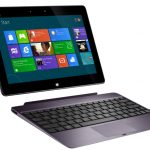
Late last year, I got pretty excited about the Asus Eee Pad Transformer Prime Android tablet. The tablet/notebook form factor spoke to me, the specs were impressive, and the overall package looked just right for an individual looking to do more working than playing.
Asus has revisited the appealling form factor of the Transformer Prime and applied it to Windows RT, the version of Windows 8 specifically for devices running on ARM-based processors.
Recent Headlines
BetaNews, your source for breaking tech news, reviews, and in-depth reporting since 1998.
© 1998-2025 BetaNews, Inc. All Rights Reserved. About Us - Privacy Policy - Cookie Policy - Sitemap.